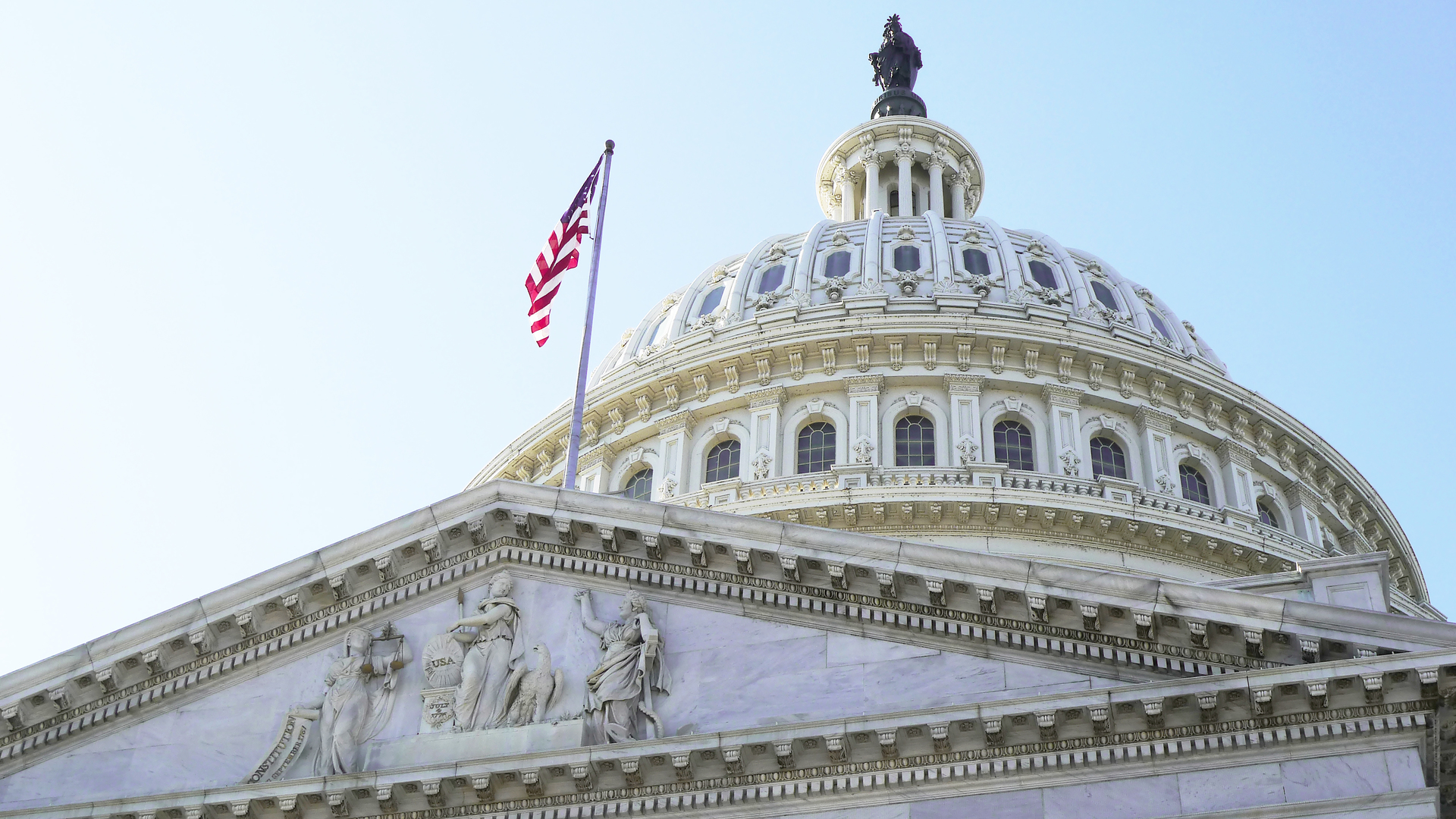Q&A with the Cencora Office of U.S. Public Policy and Advocacy
By Lisa Harrison, Beth Mitchell
Cencora is committed to keeping our customers informed about government and legislative actions that impact community-based specialty practices. In our previous Q&A from December 2024, we discussed several key topics including the Seniors’ Access to Critical Medications Act of 2024, the 2025 Medicare Physician Fee Schedule Final Rule, priorities for the federal government following the November election, and more. You can read that article here.
In this edition, Lisa Harrison, SVP & President, Specialty Distribution and Solutions at Cencora, and Beth Mitchell, VP of U.S. Public Policy and Advocacy at Cencora, discuss the latest on the Seniors’ Access to Critical Medications Act, updates around the Inflation Reduction Act, and more.
Important note: This article is based on publicly available information and does not reflect any developments that may occur following the published date. This article represents our current understanding and interpretation of information related to the topics included in this article and is subject to change as new information becomes available. This article is not intended to communicate legal advice, direction, opinion, or guidance on behalf of Cencora, the U.S. government, or any entities that are mentioned herein.

Stark Fix

Lisa Harrison (LH):
Beth, a lot has happened since you and I last sat down for one of our quarterly conversations. There’s several topics that I want to discuss with you today. Do you mind starting with the latest on the Seniors’ Access to Critical Medications Act?



Beth Mitchell (BM):
Happy to be here, Lisa. The Seniors’ Access to Critical Medications Act was not included in the continuing resolution at the end of the 118th Congress. Any legislation not passed by both chambers in the 118th Congress must be reintroduced in the new 119th Congress. This bipartisan legislation (H.R. 2484, the Seniors’ Access to Critical Medications Act of 2025) was reintroduced in the U.S. House of Representatives in the 119th Congress at the end of March 2025 seeking to amend title XVIII of the Social Security Act to establish an exception to the physician self-referral prohibition for certain outpatient prescription drugs furnished by a physician practice in Medicare.1 Cencora’s Washington, D.C.- based public policy and advocacy team continue to support our customers and lead productive discussions with Rep. Harshberger’s office, and other legislators, to enable patient access to medications.

LH: As we continue to hear concerns about this issue from our physician customers, our support of this bill is unwavering. The commitment from our physician customers and our team members has been monumental in the progress that we’ve made so far.
Inflation Reduction Act (IRA)
LH: Another topic that is on the minds of many of our customers is the IRA. Specifically, the Medicare Drug Pricing Negotiation Program (MDPNP) as we prepare for the first round of negotiated prices to go into effect.
BM: Which is coming up quickly. The first cycle of maximum fair prices (MFP) for the 10 Part D drugs that were selected in 2023 is January 1, 2026.2 Recently, there have been a few notable announcements from the Centers for Medicare & Medicaid Services (CMS):
- CMS published explanations for the first round of 10 selected Maximum Fair Price (MFP) Part D drugs
- In January, CMS also published the second round of 15 selected MFP Part D drugs
- In March, CMS confirms manufacturer participation in the second cycle of negotiations
LH: With the first cycle of negotiated prices approaching and progress already happening in regard to the second cycle, it’s crucial for everyone to stay informed about these developments. That’s why we’ve established an IRA Resource Center that consolidates resources from CMS and additional insights to help our customers understand possible implications from the program and how they should be preparing.
Executive orders
LH: Changing gears a bit now. Let’s talk about the slew of executive orders (EOs) that have been signed recently. For our customers, I can imagine it’s hard to keep track of what may or may not be pertinent to their patients and their practices. What have you seen that our customers should be aware of?
BM: You’re right. There has been quite a bit of activity over the past few months. According to the Federal Register, President Trump has signed 100+ EOs since taking office earlier this year.3 A few with impact to the healthcare industry are:
- Lowering Drug Prices by Once Again Putting Americans First, which was recently introduced on April 15, 2025, targets the goal of “lowering prescription drug prices to American patients.” While there are many sections of this EO each addressing a different method of achieving that goal, a few of them include “Improving upon the Inflation Reduction Act”, “Reducing the Prices of High-Cost Drugs for Seniors”, “Promoting Innovation, Value, and Enhanced Oversight in Medicaid Drug Payment”, “Improving Transparency into Pharmacy Benefit Manager Fee Disclosure”, and more.4
- Make America Healthy Again (MAHA) Commission, led by Robert F. Kennedy, Jr., is an initiative that aims to identify various factors leading to chronic diseases in the U.S., specifically focusing on environmental and food factors, regulatory actions, etc., to develop a strategy to reverse the rising rates of U.S. chronic disease.5
- Empowering Patients with Clear Accurate, and Actionable Healthcare Pricing Information is designed to enable patients with the information they need to make well-informed healthcare decisions by promoting “universal access to clear and accurate healthcare prices.”6
- Establishing and Implementing the Department of Government Efficiency (DOGE) to identify areas to make the government more efficient, effective, less burdensome, and less costly by reviewing programs, regulations, and dollars spent by the federal government to identify what needs reform.7
- Eliminating Waste and Saving Taxpayer Dollars by Consolidating Procurement aims to reduce waste by consolidating federal procurement under the General Services Administration (GSA) and requires federal agencies to transfer their purchasing of common goods and services to the GSA's centralized system.8
LH: Did President Trump also rescind previous executive orders? Can you tell us about a few of those?
BH: That’s correct. Since taking office, President Trump has also rescinded approximately 100 previous EOs9. Of those, I’ll briefly mention two:
- Strengthening Medicaid and the Affordable Care Act (Executive Order 14009) encouraged states to expand Medicaid and improve access to Affordable Care Act (ACA) coverage while establishing special enrollment periods to increase health insurance accessibility. Additionally, it directs actions to reduce prescription drug costs through negotiation, importation, and promotion of generics, promotes health equity by addressing disparities in healthcare access and outcomes, and enhances consumer protections to enable affordable and quality health coverage.10
- Lowering Prescription Drug Costs for Americans (Executive Order 14087) directed the HHS Secretary to "consider whether to select for testing by the Centers for Medicare and Medicaid Services Innovation Center (CMMI) new health care payment and delivery models that would lower drug costs and promote access to innovative drug therapies for beneficiaries enrolled in the Medicare and Medicaid programs, including models that may lead to lower cost-sharing for commonly used drugs and support value-based payment that promotes high-quality care.”11
LH: Will these rescissions have any lasting effects on other initiatives?
BM: Since the recission of Executive Order 14087, CMMI has terminated four Medicare payment models early following a comprehensive evaluation. Additionally, CMS will no longer pursue two prescription drug payment demonstrations: the Medicare $2 Drug List and Accelerating Clinical Evidence models.12
Fortunately, the Enhancing Oncology Model (EOM) will continue to move forward as it was determined to be capable of meeting the Center's statutory mandate – either as is or with future modifications.
LH: Beth, I can’t thank you enough for the time, effort, and commitment that your team continues to give to staying engaged and advocating for our customers every day.
BM: And thank you for your partnership, Lisa. We will continue to provide proactive perspectives and strive to remain a reliable resource for our customers, monitoring and proactively shaping congressional and administrative activity, providing updates on implications, and sharing our expertise to shape public policy in support our customers and their patients.
Thank you, Beth and Lisa, for providing valuable insights into the current legislative landscape and the ongoing efforts of Cencora and our industry partners to support community care. Stay tuned for our next quarterly update, where we will continue to shed light on the latest government affairs.
Sources
- https://www.congress.gov/bill/119th-congress/house-bill/2484/text
- https://www.cms.gov/files/document/fact-sheet-negotiation-process-flow.pdf
- https://www.federalregister.gov/presidential-documents/executive-orders/donald-trump/2025
- https://www.whitehouse.gov/presidential-actions/2025/02/establishing-the-presidents-make-america-healthy-again-commission/
- https://www.whitehouse.gov/presidential-actions/2025/04/lowering-drug-prices-by-once-again-putting-americans-first/
- https://www.whitehouse.gov/presidential-actions/2025/02/making-america-healthy-again-by-empowering-patients-with-clear-accurate-and-actionable-healthcare-pricing-information/
- https://www.whitehouse.gov/presidential-actions/2025/01/establishing-and-implementing-the-presidents-department-of-government-efficiency/
- https://www.whitehouse.gov/presidential-actions/2025/03/eliminating-waste-and-saving-taxpayer-dollars-by-consolidating-procurement/
- https://www.whitehouse.gov/fact-sheets/2025/03/fact-sheet-president-donald-j-trump-rescinds-additional-harmful-biden-executive-actions/
- https://www.federalregister.gov/documents/2021/02/02/2021-02252/strengthening-medicaid-and-the-affordable-care-act
- https://www.govinfo.gov/content/pkg/DCPD-202200925/html/DCPD-202200925.htm
- https://www.cms.gov/newsroom/fact-sheets/cms-innovation-center-announces-model-portfolio-changes-better-protect-taxpayers-and-help-americans





